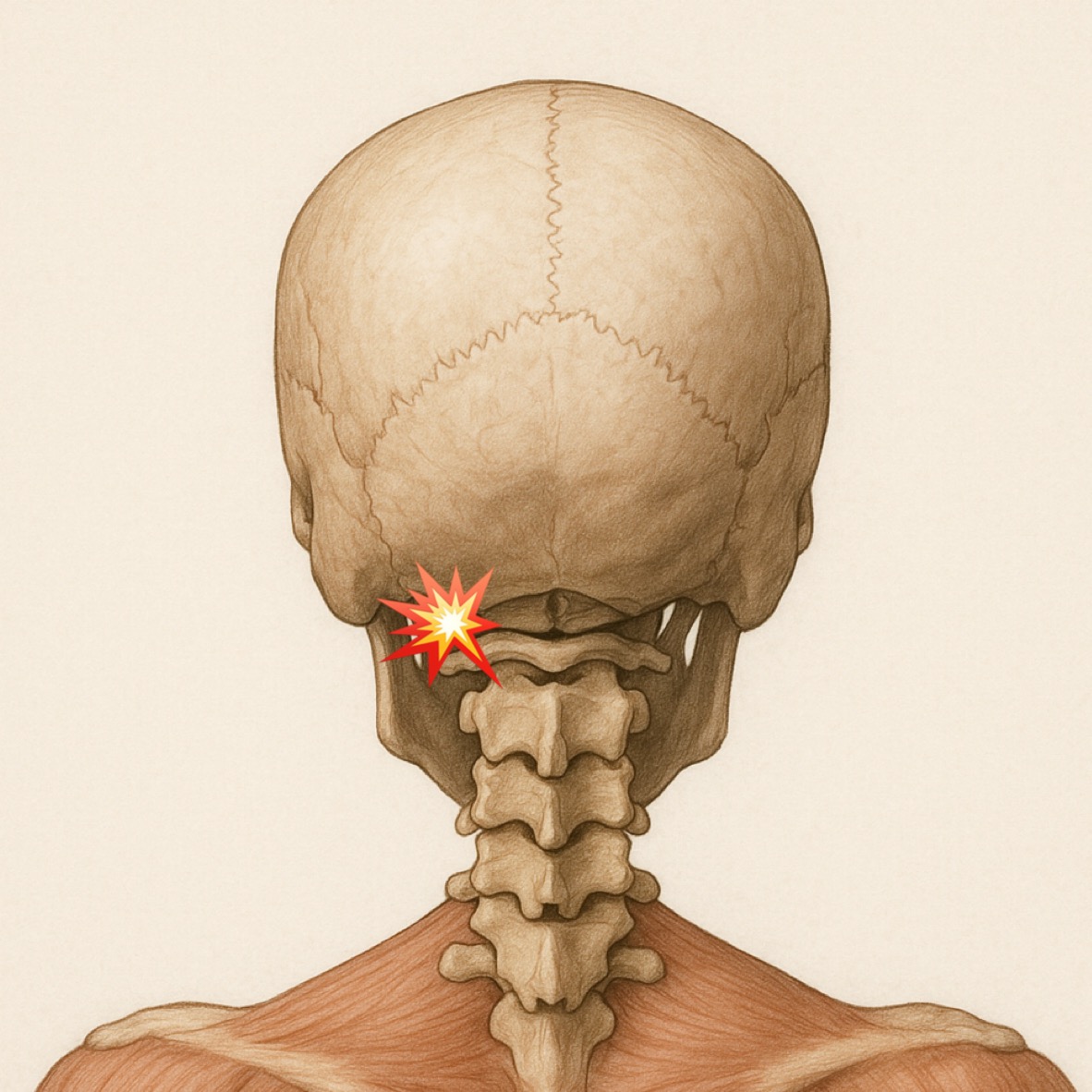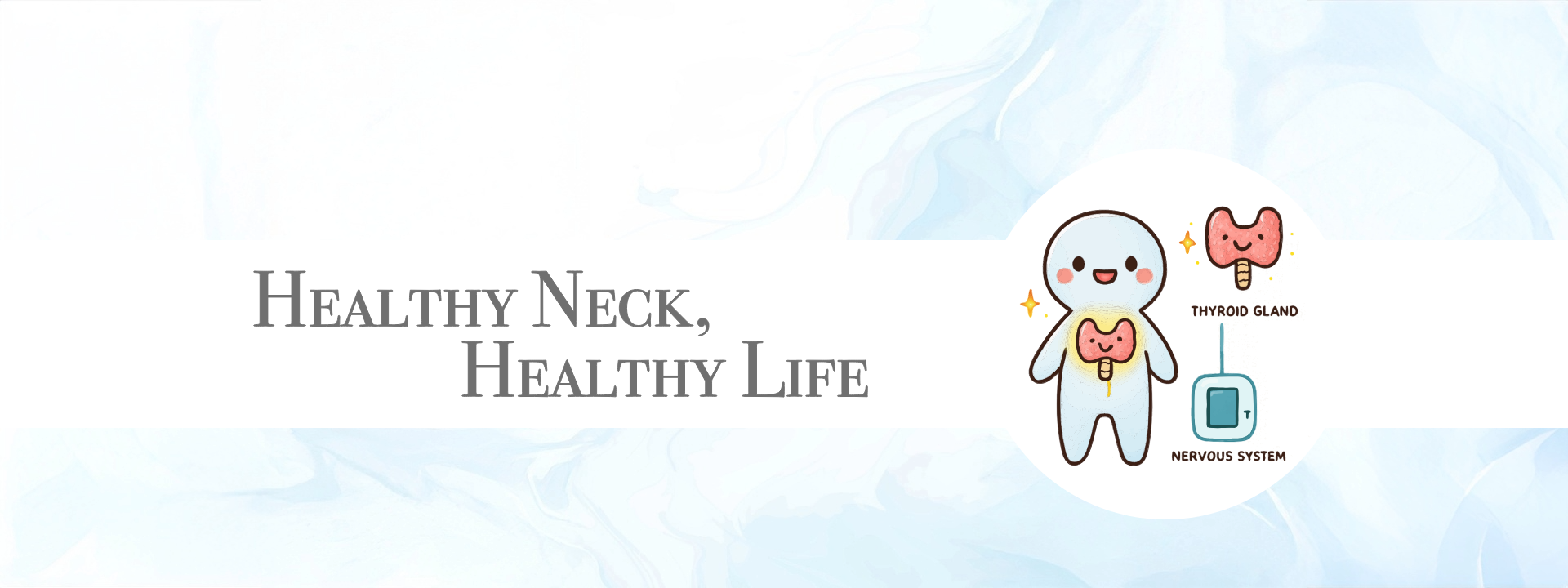Evening Discomfort May Be Caused by Vagus Nerve Compression
Some people feel unwell or emotionally unstable in the evening. One possible cause is compression of the parasympathetic nervous system, especially the vagus nerve.
Symptoms That May Appear Due to Vagus Nerve Compression
Symptoms commonly seen in the evening include:
- A feeling of tightness around the head
- A sense of energy rising upward (hot flashes, internal heat)
- Warmth in the face or head
- Irritability or emotional instability
Many patients describe the sensation of “energy rising” as a peculiar discomfort, like heat moving up through the head and escaping through the nose.
Common Physical Characteristics
Patients who experience these symptoms tend to have one thing in common: the space between the C1 vertebra (atlas) and the occipital bone is extremely narrow, and the joint lacks mobility.

▲ Reference: Junction between C1 (atlas) and the occipital bone
Medically, the atlanto-occipital joint is said to have zero degrees of rotational range of motion.
However, in clinical practice, it is believed that a small degree of flexibility or “play” is necessary for proper circulation and nerve communication.
When the muscles surrounding this area become tight or the joint itself becomes stiff, it can lead to compression of the parasympathetic nervous system—particularly the vagus nerve—causing a range of autonomic symptoms.
Our Approach to the Atlanto-Occipital Joint
This joint is structurally delicate and requires a high level of precision to adjust.
Conventional chiropractic techniques often do not reach this area effectively.
At our neck-specialized clinic, we use proprietary techniques developed through years of clinical experience to intentionally restore subtle mobility to this joint.
This targeted adjustment often improves vagus nerve function and helps alleviate symptoms that tend to worsen in the evening.
Compression Is Especially Common on the Left Side
Clinically, we frequently observe that the compression occurs on the left side of the C1–occipital joint.
This area is closely related to the path of the vagus nerve, and we often see corresponding tension in the left side of the neck and upper body.
What Is the Vagus Nerve?
The vagus nerve is one of the most important components of the parasympathetic nervous system.
It plays a vital role in regulating internal organ function, including:
- Heart rate
- Digestive activity
- Respiratory rhythm
When the vagus nerve is compressed or its function is impaired, symptoms may include:
- Weakened heartbeat
- Sluggish digestion
- Shallow breathing
Small Shifts in the Neck Can Cause Major Symptoms
Even slight misalignments or tension in the neck can have a significant impact on the entire parasympathetic nervous system.
If you notice recurring discomfort in the evening, it may be related to structural issues in the neck.
We recommend addressing these concerns before symptoms become chronic.



コメント